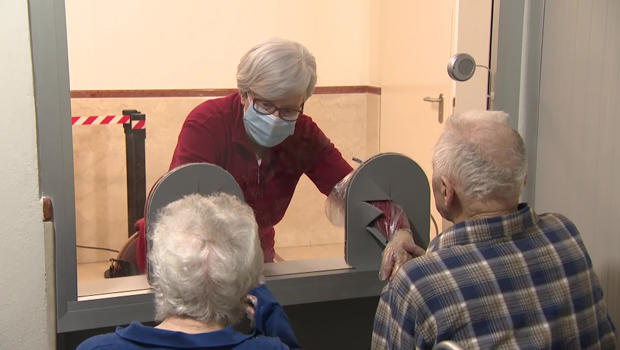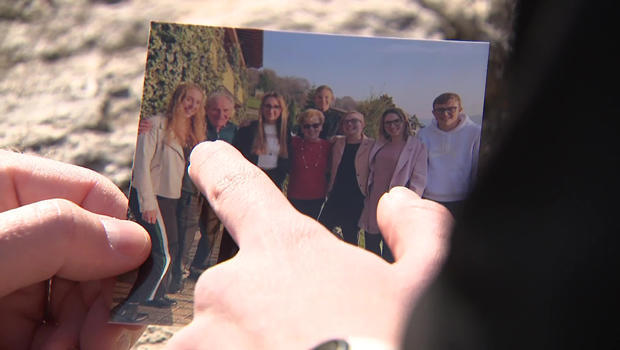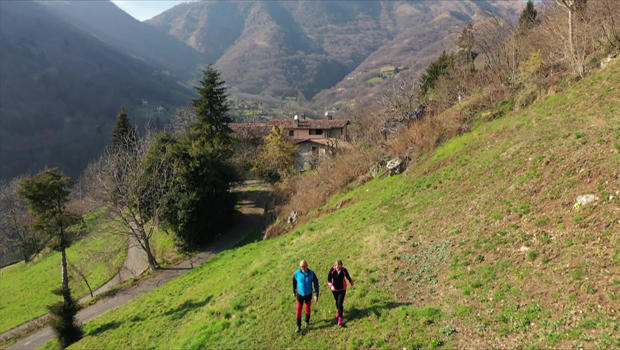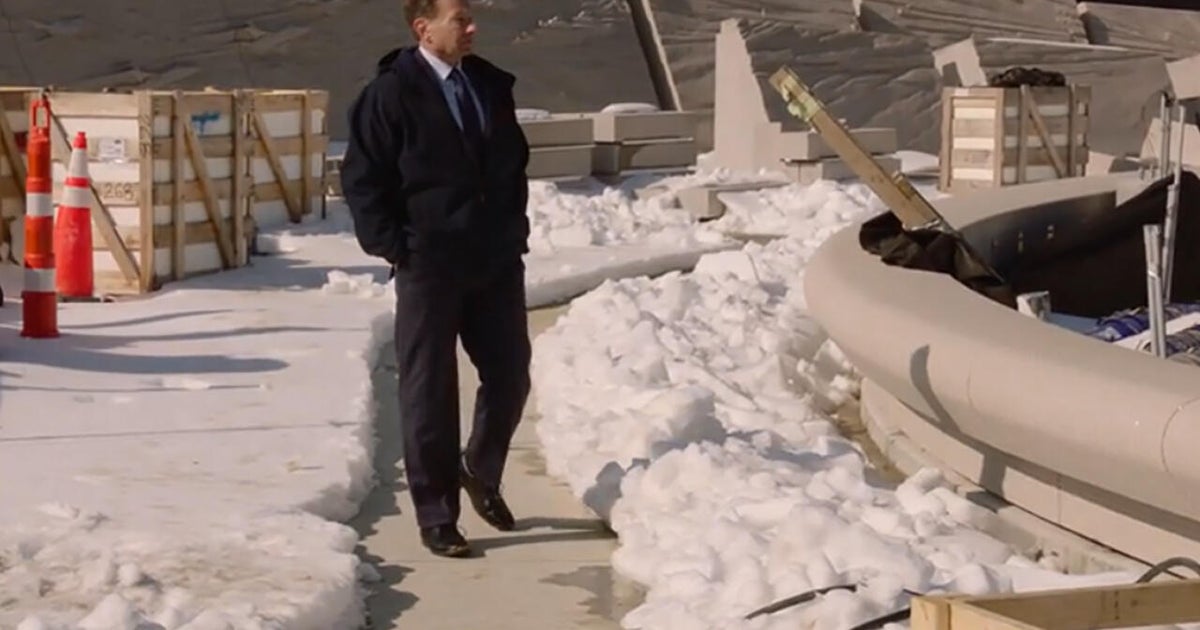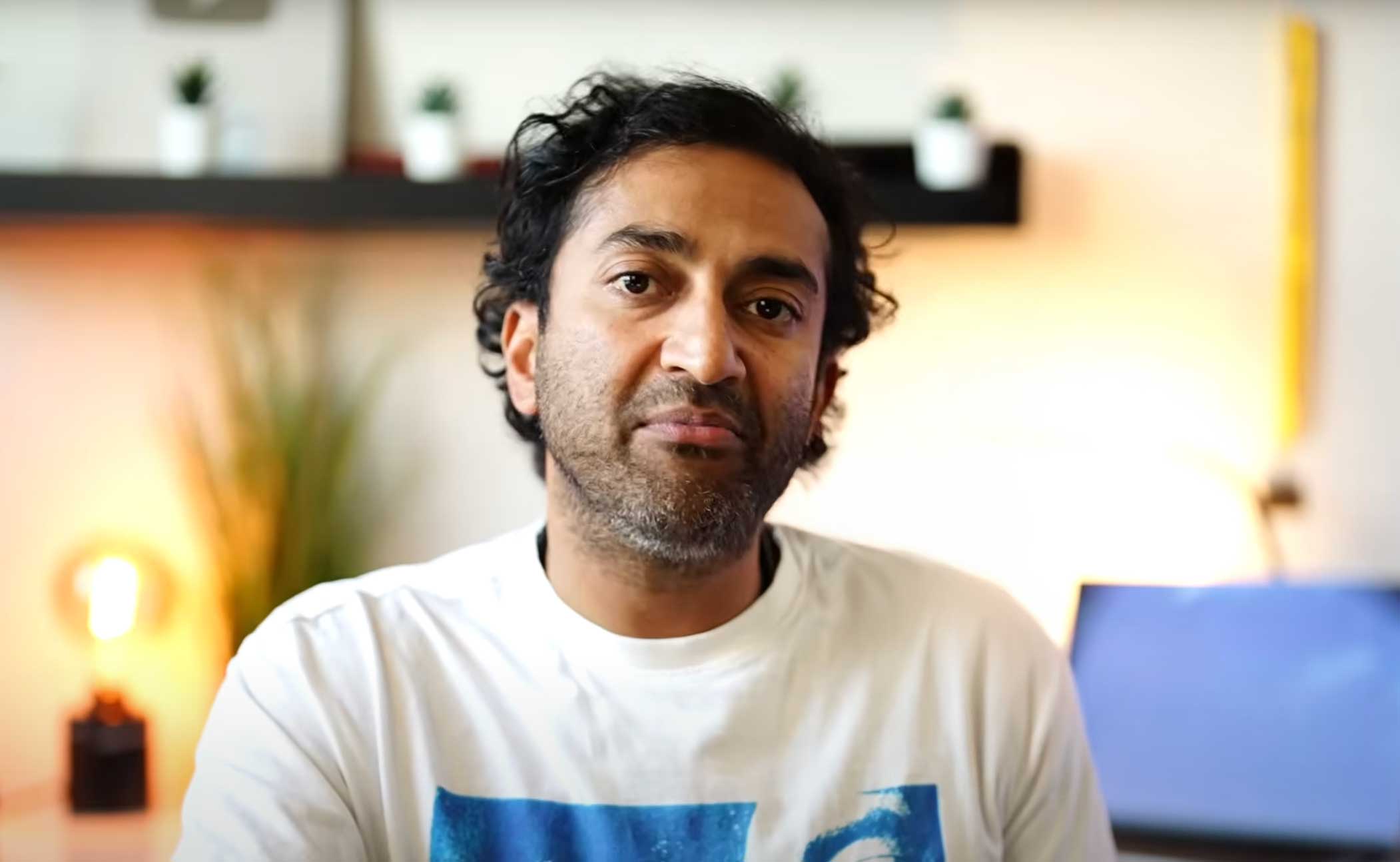Italy's pandemic survivors, one year later
At a nursing home in northern Italy, they were playing a memory-boosting game when correspondent Seth Doane visited this past week. But no one wants to remember a year ago, when 40 percent of the residents died from the coronavirus in a month.
Today, those in the facility have been vaccinated, and family visits have resumed, with precautions. Due to fears from COVID variants and a slow vaccine rollout, physical contact is only possible through plastic, from behind barriers.
"My father can't see," Nicoletta Biava told us. "By touching him, he can better feel our presence."
Dr. Barbara Codalli, who's in charge, told Doane after so much trauma, she's not sure if she's seeing a "light at the end of the tunnel" – or a train heading toward them.
Doane said, "There's something beautiful about those visits, but also sad, when the people reach through [the plastic barriers] with their hands, but they can't quite get closer."
"Yes, it's true," she agreed. " Unfortunately, today we cannot allow ourselves any more than that."
Italy still has a nationwide curfew and mask mandates after suffering roughly 100,000 COVID deaths. It was the first Western country to go into a nationwide lockdown, leaving usually-packed piazzas and canals eerily empty.
The small town of Nembro in Lombardy was not some well-known tourist site, but it did become infamous in Italy because it had the country's highest death rate in those early days. In town, it seemed, everyone knew someone who'd died.
Gloria Bergamelli showed Doane a photo of her grandfather, who had died.
"How many of these people in this photo got COVID?" Doane asked.
"All of these people," she replied.
Her uncle, Sergio Lussana, was in the ICU. He's now able to exercise again, and Bergamelli joined him hiking – a way to honor her grandfather who loved these mountains.
They lost so many family members it's hard to keep track.
At the town's church, Father Matteo Cella was not permitted to hold funerals. After months of celebrating Mass online, they're now back in person, at reduced capacity.
"This virus forced us to face some fundamental issues – life and death, the importance of time, closeness to others and solitude," Father Matteo said. "The question is, will this traumatic experience help us to become better in some way?"
One year on, "progress" here can feel fleeting – and hard to grasp.
For more info:
- Nembro (Official site)
Story produced by Anna Matranga and Aria Shavelson. Editor: Remington Korper.
